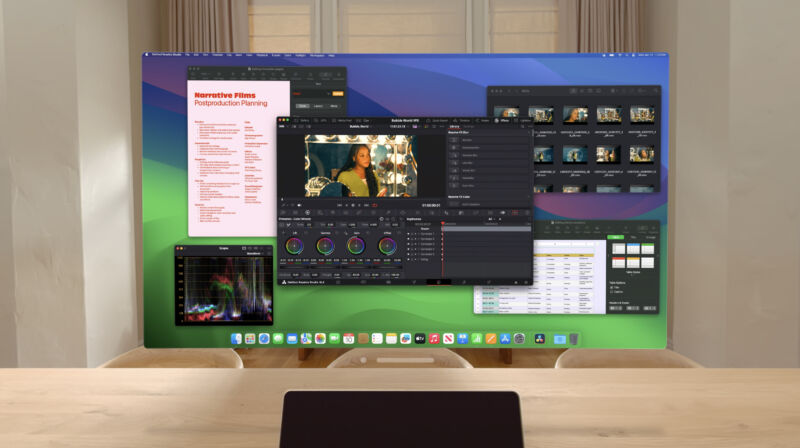visionOS 2 offers iterative improvements and refinements, plus new developer APIs.

CUPERTINO, Calif.—Apple kicked off the keynote for its annual developer conference by announcing a new version of visionOS, the operating system that runs on the company’s pricey but impressive Vision Pro mixed reality headset.
The updates in visionOS 2 are modest, not revolutionary—mostly iterative changes, quality-of-life improvements, and some features that were originally expected in the first version of visionOS. That’s not too surprising given that visionOS just went out to users four months ago.
statement, and to receive marketing and account-related emails from Ars Technica. You can unsubscribe at any time.
Vision Pro users hoping for multiple virtual Mac monitors will be disappointed that’s not planned this time around, but Apple plans to add the next-best thing: Users will be able to take advantage of a larger and higher-resolution single virtual display, including a huge, wraparound ultrawide monitor mode that Apple says is equivalent to two 4K monitors.
I worked exclusively in Vision Pro for a week—here’s how it wentThere’s one major machine learning-driven feature: You will soon be able to convert 2D images into 3D spatial ones in the Photos app, even photos you took years and years ago, long before iPhones could take spatial photos. (Apple also announced that a new Canon DSLR camera will get a spatial photo lens, as another option for taking new spatial photos.)
Other notable improvements include support for using travel mode on trains instead of just airplanes and a simple finger gesture to open the home screen so you don’t have to invoke Siri or reach up to press a physical button on the headset.Advertisement
A lot of the improvements that will lead to better apps come in the form of new developer APIs that will facilitate apps that really take advantage of the spatial features rather than just being flat 2D windows floating around you—something we noted as a disappointment when we shared our impressions of the device. Some APIs help create shared spatial experiences with other Vision Pro users who aren’t in the same room as you. One of those, TabletopKit, is focused on creating apps that sit on a 2D surface, like board and card games.
There will also be new enterprise-specific APIs for things like surgical training and manufacturing applications.
Finally, Apple says Vision Pro is going international. It will go on sale in China (including Hong Kong), Japan, and Singapore on June 13 and in Australia, Canada, France, Germany, and the UK on June 28.
There was no specific release date named for visionOS 2.




